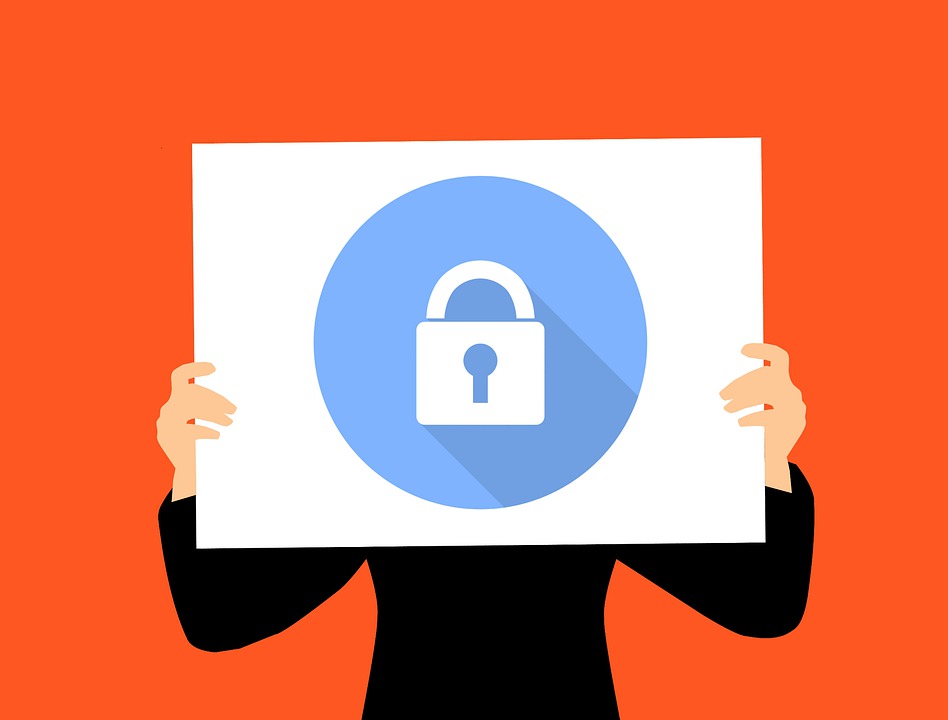If you have bought and registered a site, you have possibly felt a bit of nervousness about reveling your email address, contact number, and address in the public WHOIS record of your domain. A number of registrars provide the option of domain privacy services without costing you any money, however the question is that “are they really worth it, and do they actually work for you?” In this tutorial, we will talk about the existence of WHOIS database plus the practices for securing your privacy at what time you register a site.
What do you understand by WHOIS database?
In general words, WHOIS database openly shows contact details of a website owner, for example the email address, fax number, telephone number, address, and name of the registrant. In the year of 1982, the IETF (Internet-Engineering Task-Force) posted a procedure that was employed to make a users directory on the ARPANET (which ultimately known as the Internet now). That user directory includes the contact details for anybody who demanded to transmit data over the network. At present, the WHOIS system is ready to ask the question like “who is in charge for this IP address or domain name?” Every domain name that is registered should contain a public database of the organization or person who registered it (also known as the registrant). That database consists of (with some other things) the email address, contact number, address, and name of the domain’s registrant.
The main objective of collecting this information was to help the network administrators. WHOIS database was employed to recognize and fix problems, protecting the integrity and stability of the Internet. But, since the Internet has full-fledged, this information has ever more been employed in an unpleasant manner by bad actors and spammers. Simultaneously, it’s essential for preservation and repair has reduced.
Different proposals to revise or dispose of WHOIS have been soared over the last decade; however none has still been adopted. On the rear side, there also have been suggestions to increase WHOIS database and throw away domain privacy services. Proposals on both areas of the argument get vital criticism because loads of people have created businesses that depend on the standing quo. Per se, the existing system is expected to remain in place with no or minimal changes for predictable future.
What is exactly WHOIS privacy service?
The best option to hide your private WHOIS details is to employ your domain privacy product of your registrar. For some dollars, the majority of registrars will conceal your contact details and rather show generic contact details for the registrar. Although you do this, you still require providing right contact details to the registrar to remain compliant with ICANN policy. Should any legal motion or court order want that the registrar reveal your information, it’ll require being correct so as to ignore breaking your domain name registration with ICANN. However, barring that exceptional case, domain name privacy services do their job work. Your personal details won’t be available via the WHOIS record when you register yourself for domain name privacy.
How you can hide domain registrant information
As an individual who does continuous digging on domain-names, we frequently come across a number of aspect that prevent us from knowing the owner of the domain name, thus we thought we would give some important and useful tips for you to hide the ownership of the domain name. So, the question is why would you wish to hide the truth that your company or you own a domain name? Why you should not hide your information?
Why you should not your ownership of a domain
- You wish to sell it. Well, whois information is significant to stay updates with a valid and proper phone number and email address. Frequently, this is a boulevard or a simple contact.
- You are legitimate! It looks like shady to us that a few companies or people hide that they have a domain for a long amount of time. Actually, this can mainly be whois privacy protection. In case there is not point to hide your information then why do it?
Why you may wish to hide that your company or your owns a particular domain name:
You started a new company and you don’t want to expose your name.
- Strategy
- Upcoming market
- New service
- New product
- Several other reasons
So what should I do to hide the ownership information of a domain name?
There are a number of things that are actually significant and it begins once you get access of your own domain name.
- Whois data is public and is accessible for everyone: If your register a domain name or you make purchase of a domain name, be certain to apply whois privacy protection immediately at the time of transferring or registration in a domain name to your preferred registrar. Well, this does not imply that you must purchase privacy protection; rather you can just make use of “general” information in whois for the particular domain name that you want to hide. If we were being reasonable and did not wish to employ or opt for a whois privacy-protection service and spend approximately $8 per year, we would employ the below mentioned whois information for instance –
Generic yahoo, gmail etc. email IDs that is connected to nothing, so likely a fresh one such as domainnameherecom@gmail.com.
Contact information to an answering service
P.O. Box Number
Domain Manager
Don’t repeat the whois information on any other domain name, as that can begin a link or pattern or trend.
A number of big firms make use of domain managing services such as MarkMonitor and at what time the company likes to stay unidentified at least for some time, they make use of a general name in whois such as DnSination Inc.
In addition, you could employ your legal service.
- Hosting. Each and every domain name requires a DNS or domain name server. These are offered through a web hosting firms or you have the option to create your individual on a fanatical server. You can create and install a dedicated server and make use of your domain-name for domain name server. Because the whois for your domain name is secured there is no connection between your domain name and web hosting. If you wish to make use of a web hosting service provider on the whole, choose a big one so that you can easily assimilate! You can employ powerhoster.com or any other reputed domain name server that is used heavily. This enables you to mix in. We hardly ever search huge movements on domain name server such as domaincontrol.com or aws-01.org.
- IP Address: If you own your individual server (the majority of big organizations do that), do not put the domain name on your personal server, since IP Addresses can esily be tracked and check who owns them.
- Copyright: Many a times, companies make use of the footer (usually the bottom space of the page) for showing their copyright information. Footer is also a space that can link a domain name to a firm or organization since it is frequently said who owns the phone number, an address, copyright etc. This information can simply generate a link.
- Names (personal): As soon as a website is live and still you feel the requirement to stay unidentified, things get a bit harder. Any business names can simply link a domain name or website to its owner. Employees, email addresses, as well as phone numbers. With a number of social media websites, even user names are employed and again generate a link.
- Code: generally, View Source is something we employ on various landing pages and also on blank ones as they can have signs about the ownership of the domain name. The majority of services provide a regular landing page, hence that’s a worth using option up till now. If you choose to create a small landing page to aid you get footing in search engines, you need to certain that the code does not expose anything or connect anything to you.
How does the Whois-Privacy system work?
At this point in time you trigger the service we swap your information with ours. We will also change your e-mail id to an e-mail id with this layout domainname.com@whoisprivacycontact.com, however still you will get the e-mail because we resent them the linked e-mail id to your domain. By showing our information we work as mediators in fax as well as postal communications. We will resend you nearly all received docs from third parties through e-mail, with no extra charges.
Why does private registration of domain matter?
Sadly, nowadays it’s not suggested or secure to have your personal information accessible to the public. There are a number of plans that have been developed to excavate private information from the WHOIS record – this excavated information is just to be obtained by the folks you would least want to have it:
- Solicitors: Even though they are not virtually as harmful as the earlier examples, solicitors can be bit troublesome. With all of the personal details they have entry to, they’ll be capable to flood your postal mailbox, inbox, and phone. There is nothing more annoying than a range of soliciting phone calls at 8:00 pm while relaxing from a long day.
- Spammers: When your private data is accessed by various spammers, your mail box will be flooded with useless email having links to both websites containing malware as well as phishing websites. The fallout is a computer virus or fetching your credit or debit card credentials (they have your phone number, address, and name already).
- Identity thieves: Well, there have been instances where identity thieves uncover private information via the WHOIS record. After that they build extra email addresses and domain names in the name of original domain owners. This is performed for the intention of taking the original sign-in details to the site, thus causing the theft of your website or domain name for which you have dedicated all your hard work and time. In addition, these instances can be quite hard to solve with the help of ICANN (abbreviation of Internet Corporation-for-Assigned Names-and-Numbers), which is the leading governing authority of the web.
Final Verdict
You can see that, there’re a number of advantages to keep your private information protected. So as to stop unwanted solicitation, spam, and identity theft, think about including private registration into your domain-name. If you made a decision of buying a domain name via any service provider, just click on the check-box for “Private Registration” after getting to a checkout window so as to secure your personal information. Now in future, whenever you visit the website for registering a new domain name, do not forget to secure your data first.



